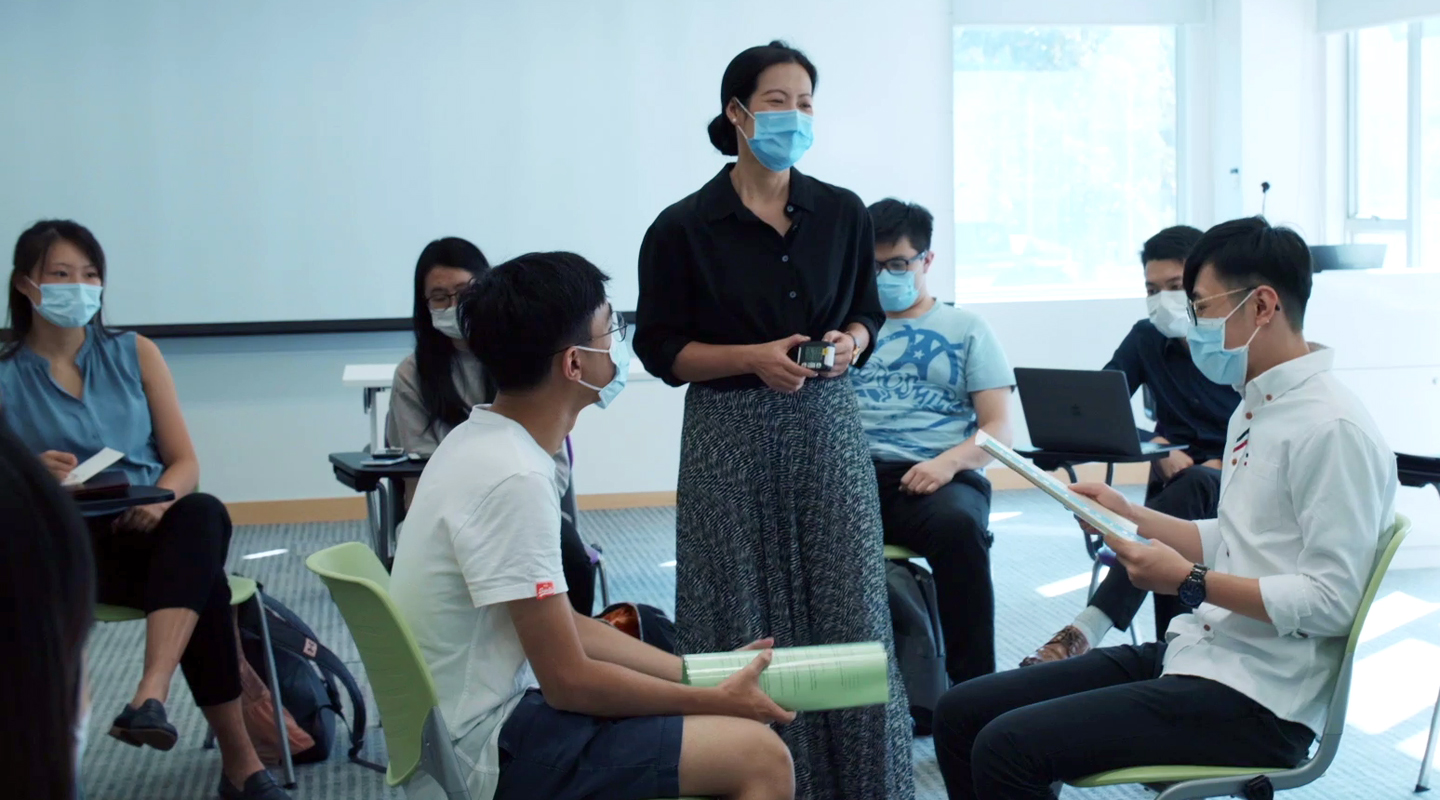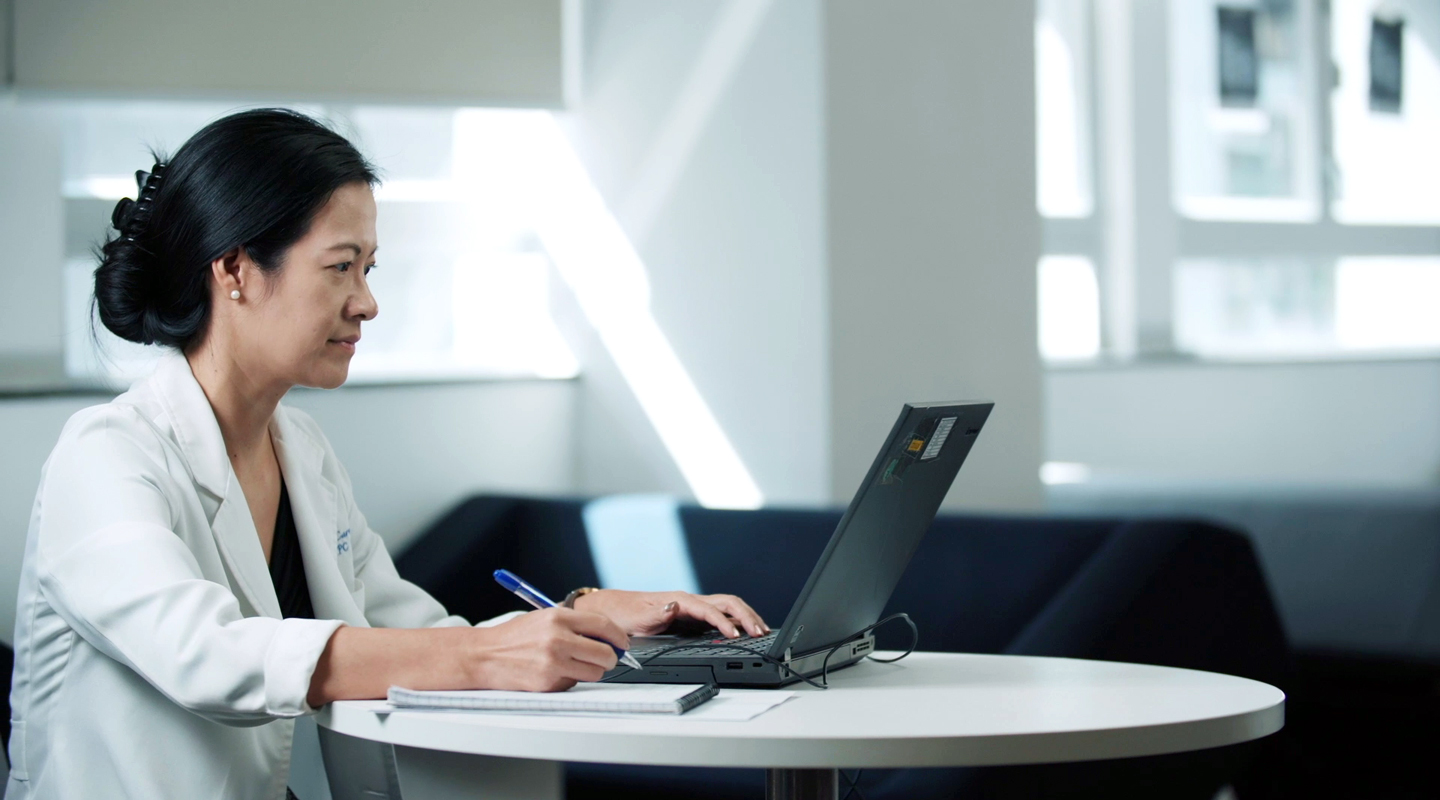Dear readers, With the launch of e-newsletter CUHK in Focus, CUHKUPDates has retired and this site will no longer be updated. To stay abreast of the University’s latest news, please go to https://focus.cuhk.edu.hk. Thank you.
A Prescription of Contexts and Interactions for Doctors
Carmen Wong advocates for clinical communication and experiential learning

Articulate and empathic, Prof. Carmen Wong is a seasoned family physician who puts her medical and communication skills to good use in medical education. In recognition of her contribution to this field, she was presented with the University Grants Committee (UGC) Teaching Award (General Faculty Members) in 2020, a highly coveted honour befitting such a dedicated educator.
Professor Wong focuses on teaching clinical communication and the doctor-patient interaction, which is about building rapport, understanding perspectives and priorities and sharing decision-making between medical practitioners and patients. At CUHK, where medical students have diverse backgrounds, clinical communication and consultation skills are taught in small groups so that learning differences can be addressed.
‘Here at CUHK, we like to design fun activities when teaching and learning clinical communication,’ says Professor Wong. ‘While most medical students in consultations are thinking of medical diagnoses, I also want our students to focus on communication and to make sure that they are picking up telltale and subtle signs about the patient’s psychological, social and home circumstances. It’s all about context.’
Professor Wong is currently Associate Professor of Practice in Family Medicine and Medical Education at CUHK’s Jockey Club School of Public Health and Primary Care and Assistant Dean (Education) of the Faculty of Medicine. She first joined CUHK in 2010, where she has been engaged in teaching, clinical practice and research. She says that of the three, she finds teaching the most rewarding aspect of her career.
In medical training, the popular phrase ‘see one, do one, teach one’ reflects a method of teaching in which medical students observe a task or procedure, perform the task on their own, and then teach another trainee how to conduct the task. This simplistic mode of learning is rapidly evolving as the repertoire of teaching and training professionals progresses.
‘Medical education is a specialty in itself,’ says Professor Wong. ‘How best to teach and how best to learn professional skills in “doctoring” is becoming a specialist area and is increasingly recognized in Hong Kong.’

Born in Scotland and raised in Hong Kong, Professor Wong was educated at Cardiff University. Her undergraduate degree in psychology and her medical training at Cardiff University with a sociological emphasis on class, family and gender have influenced the way she designs her courses.
‘When I design courses, I try to enhance metacognition, which is the critical awareness of one’s own thinking and learning,’ she says. ‘It’s not only bookwork; it’s about awareness of the contexts, human interactions and communication, and how outcomes may differ if the situation is slightly different. It’s more concerned with deeper thinking than with facts and figures.’
To Professor Wong, it’s not only medical knowledge that matters; it is essential to know how to be a team player. Physicians need the ability to communicate with their colleagues and patients, and even with their patients’ caregivers and family. This is the trickiest aspect for medical students in their clinical training.
Ideally, budding physicians should be able to communicate with their patients and be their advocates. They should also be empathetic and support their patients in their lives and their illnesses.
‘What is written in the textbooks is what is experienced in the Western Hemisphere, etc.,’ Professor Wong explains. ‘They are not really written for this region and locality. We have to think about what is constant in medical education, what is different and what areas need change or support. And that’s enriching for education.’
In addition to their textbooks, online resources and their teachers, students can in fact learn a lot from their patients. ‘Our students are very young,’ she says. ‘They can learn about life and diseases from our patients. They can learn to see diseases from the patients’ point of view. The significance of a disease differs from one patient to another.’
When asked how she tackles the teaching of family medicine, a broad specialty that allows for a wide variety of career choices, Professor Wong confidently explained the importance of a team approach in delivering a student competency-based curriculum. Students accompany their teachers to clinics, where they are mentored through their clinical experience and consultation workshops providing role-play opportunities in different scenarios. In collaboration with other specialties and departments, Professor Wong also developed the CUHK Medical Audio Glossary for her students and other health professionals.

Another key area of learning experience is community attachment, in which students are sent out to NGOs, nursing homes, etc. to ensure that they get enough exposure to vulnerable communities. When students return from their attachment, the debrief encourages them to think deeply about their experience before writing down their reflections.
Design thinking, a human-centred approach, is Professor Wong’s guiding principle when designing curricula, and it helps her in ‘deconstructing constraints’ and to discover opportunities. Design thinking enables her to design a course creatively. For example, in designing space to allow students to share their ward experiences, including their communication triumphs and difficulties or what made them feel uncomfortable, and then to analyse their unease, which could be due to time pressure, the doctor’s action, patient’s feelings, their own feelings, etc.
‘The key is that through these courses, the students learn to understand complexity and how they can approach things differently,’ she says.
Another pedagogical tool that Professor Wong relies on is the learner-centred approach, which shifts the focus from the instructor to the learner, a method similar to her clinical work by focusing on the patient’s needs. Interestingly, both are being challenged by the constraints of time – the busy scheduling of students’ timetable and the time pressure of the consultation for patient care.
She is very grateful, however, for the support her colleagues and the conducive teaching and learning culture and collaborative working at the Faculty of Medicine.
To promote academic collaboration across disciplines and institutions, Professor Wong plans to use the award grant from the UGC Teaching Award to facilitate design thinking across disciplines and to conduct workshops with different universities.
In Professor Wong’s view, teachers, students, patients and physicians alike are all on a journey of learning.
‘As a teacher, you have to realize that teaching has changed radically over the past 10 years,’ she says. ‘Teaching must remain dynamic, and didactic lectures have been outperformed by newer modalities. We are all on a journey of learning.’

By elizachan@cuhkcontents
Photos by Keith Hiro